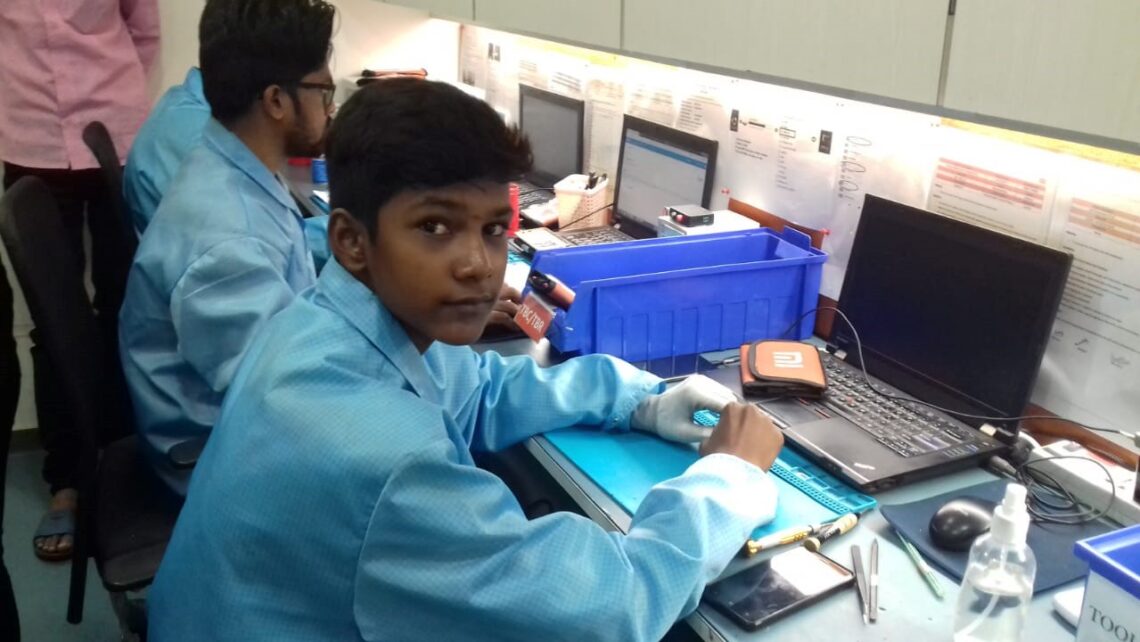Context:
India, a country of 1.4 billion people, in the past two decades has undergone remarkable economic growth and development. It is currently ranked as the fifth-largest economy in the world in terms of Gross Domestic Product. In such a progressively globalizing society, increasing levels of education and skill are perceived to be crucial to fostering economic stability. However, the social dimension of development is also critical, and despite the relatively high level of access to primary education in the country, concerns remain that youth still lack the knowledge and skills needed to compete in today’s dynamic job market. This has contributed to the youth unemployment rate being 28.3 per cent in 2021, over four and a half times greater than the total unemployment rate of 6.0 per cent.
Implementation of programme/ initiative:
Salaam Bombay Foundation was established in 2002, targeting adolescents in the slum areas of Mumbai. The Foundation assists disenfranchised youth by including them in secondary school leadership and after-school sports, arts and media programmes, all of which equip students for a long-term professional career. The Foundation raises resources from the funding provided by its partner companies, including the American Cancer Society, Pfizer and the Bill and Melinda Gates Foundation. One of the projects initiated in 2018 by the Foundation is Dream Lab. This supports marginalized adolescents aged 14 to 18 in finding internships. It also enables students to make educated professional choices and successfully move into the labour market. Dream Lab’s ‘Learn, Earn, and Grow’ concept addresses the concerns of unemployment and a lack of skill-based learning, and contributing to its success has been using survey and situational analyses in order to be better equipped when assessing the needs of youth and ways to address these.
Main challenges:
According to postulated figures from the Foundation, every 3 out of 20 adolescents from low-income homes drop out of school, which amounts to 36.4 per cent of the total number of students dropping out of school before 8th grade due to financial pressure. As a result, youth are compelled to get involved in child labour to support their families financially whilst putting their education in jeopardy. Therefore, despite there being programmes like Dream Lab that bridge the gap for youth to move towards better professional career paths, the high dropout rate has become an impediment to supporting youth in the slum areas of the project.
Results achieved:
Whilst implementation is ongoing, the project has shown promising results thus far. Over the past 6 years, the Foundation has assisted more than 15,000 adolescents across India to continue their secondary education. The Foundation has also trained over 1,000 students in 5 different states in Robotics and 5 youth from the Foundation represented the country in the Olympics of the Robotics World in Switzerland. As partnering with firms and organizations is fundamental to widening the sector areas for internship opportunities, the Foundation has collaborated with over 20 firms, including Subway, Lakme, Future Group and Monginis. This collaboration has helped interns learn necessary industry-specific skills to succeed in today’s competitive job market. Internship opportunities have been provided to over 100 youth, with over 10 different roles in over 10 different sectors, including retail, beauty and health, bakery and confectionery, mobile repair, home appliance repair, and market research. To date, the project has been successful in executing over 3,000 days of internship in total.
Moving Forward:
With interventions focusing on providing soft skills training in areas such as corporate etiquette, communication and trade-specific vocabulary, through internship opportunities, the project aims to partner with many more companies to maximize and diversify the scope of the internships it offers. Given the high rate of school dropouts, the Foundation, through other projects, aims to increase school enrolment rates so that more youth can benefit from the Dream Lab project once they are eligible to apply for internship opportunities.
Replicability:
Collaborating with other firms and organizations is paramount, as it provides essential funding and creates a smooth ground for both the beneficiaries and the Foundation to carry out and move forward with internship opportunities. In addition, conducting a survey and situational analysis helps to better comprehend the context and aids in formulating effective action plans for how to best support the target group. Other initiatives could benefit from making use of such approaches in which partnerships expand the efficacy and reach of interventions, and the dynamics in which youth at need of support are more clearly understood.
Acknowledgement:
This good practice was kindly prepared by Ms. Yashashwi Adhikari.
References:
- https://salaambombay.org/dreamlab/
- https://www.macrotrends.net/countries/IND/india/youth-unemployment-rate#:~:text=Youth%20unemployment%20refers%20to%20the,a%203.36%25%20increase%20from%202020.
- https://salaambombay.org/index.php
Project Details
Date: January 26, 2023
